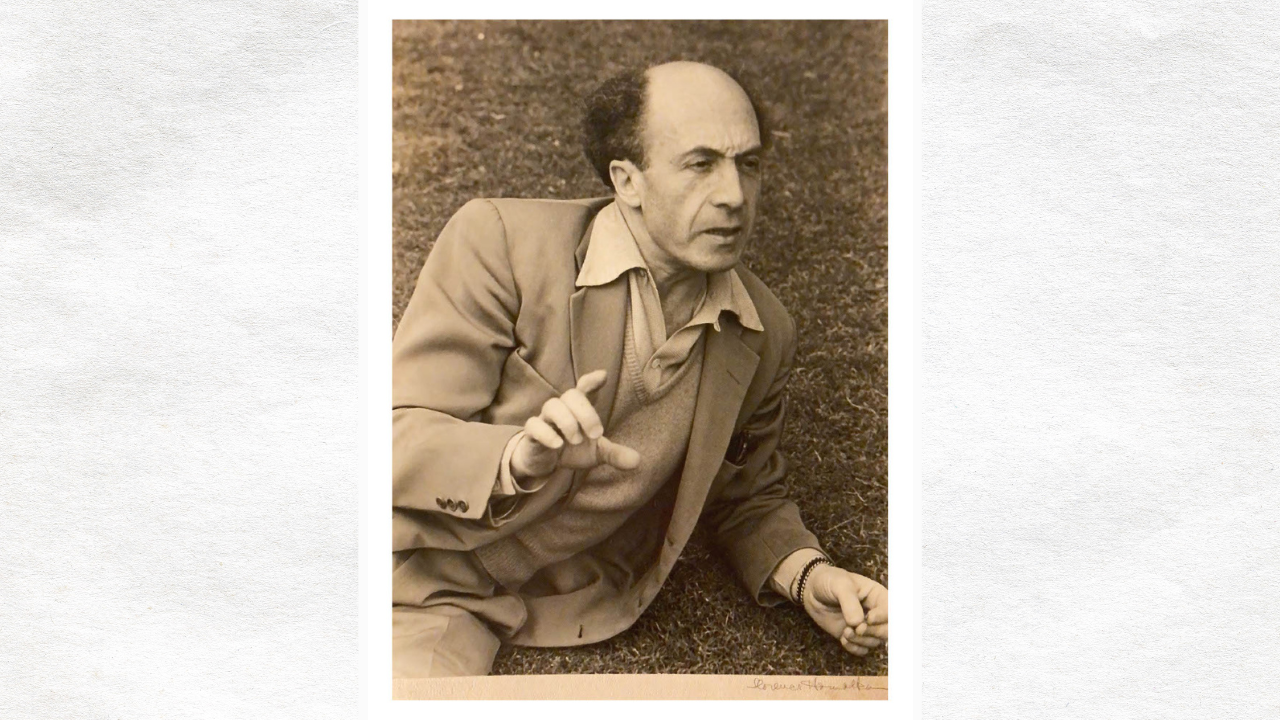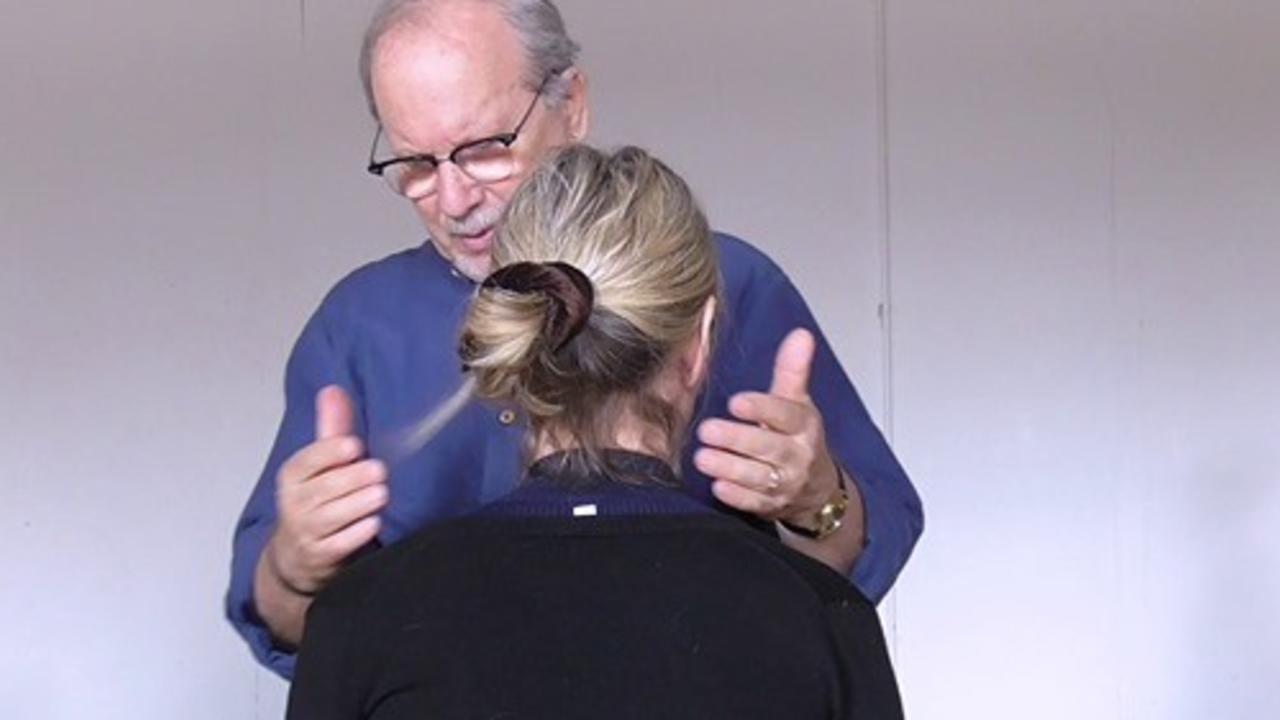Thinking
Feldenkrais
Excerpt from 'First Things First' Q&A Session

On March 24-25*, David Zemach-Bersin will teach an online ATM workshop for Practitioners only called The Roots of Uprightness: Your Inner Reptile. David looks forward to exploring the maturation of our anti-gravity function and the importance of the reciprocal relationship between the extensors of our back and our abdominal muscles for well-organized uprightness.
Below is an excerpt from the Q&A session after David's 2022 Advanced Training, First Things First, in which he talks about how these ideas apply to Functional Integration® lessons.
David: I am in Pennsylvania, USA, and Raz Ori joins me from Tel Aviv, Israel, and Anastasi Siotas from the Mediterranean island of Crete. I'm honored to have them join me so we can have an enriching dialogue between the three of us. Let's have the first question.
Raz: There is an interesting question regarding the workshop title, First Things First. You mentioned that it was inspired by virtual Functional Integration lessons that you were gi...
Benjamin Zemach & Moshe Feldenkrais

Some of you may know that Zemach became part of my surname when my wife, Kaethe, and I joined our last names. Kaethe's grandfather, Benjamin Zemach, was a dancer, actor, and early member of the Habima Theater company in Russia and Poland. Benjamin and his wife, Elizabeth, lived in New York and California before immigrating to Israel in the 1970s. Benjamin knew Moshe Feldenkrais well; they often shared Friday-night dinners together, and Benjamin attended the weekly ATM class for performing artists that Moshe taught at Habima for many years.
Last week, Kaethe was going through some papers and found a letter from her grandmother, Elizabeth, in which she refers to receiving FI lessons from Moshe. She says, "My back is much better, and if I can get the knack of riding these buses without slipping more discs, I'll be sailing pretty. Feldenkrais is quite exceptional, but also like a child who has made a discovery and do...
Inspired by Moshe! Strategies for Lengthening the Spine

A Proposal for a Strategic Hierarchy in Functional Integration

Still Reverberating

Over the last year, a new approach to Functional Integration® has blossomed in my individual work. I call it 'Harmonizing' because that's what it feels like; a dynamic, three-dimensional way of working with a strong undercurrent of joining in action. In the past, I've used this idea at the end of my FI® lessons to help clients integrate their new learning in an upright position. But recently, a new avenue opened up, and I find myself giving entire lessons this way. I was surprised when it started happening; for a moment thought I'd invented something new. But then, I remembered that actually, this approach invented me.
 In 1975, I was a student in the San Francisco Feldenkrais® Professional Training program when, on a Thursday or Friday toward the end of our second month, Moshe invited me to come to the front of the room and sit on the edge of his table. He began to work with me, and as I recall, his goal seemed to be to find an effortless path to bring me from sitting to standing. To ...
In 1975, I was a student in the San Francisco Feldenkrais® Professional Training program when, on a Thursday or Friday toward the end of our second month, Moshe invited me to come to the front of the room and sit on the edge of his table. He began to work with me, and as I recall, his goal seemed to be to find an effortless path to bring me from sitting to standing. To ...
Wholeness vs Segmental Thinking

From a talk given in response to a question during the second year of the New York VIII Feldenkrais Professional Training Program
Transcribed and Edited by Morgan McKenzie Kauffman
It is your ability to turn towards your own sensation that brings another to sense themselves. It is your ability to feel and know yourself in your wholeness, that enables the other person to feel their wholeness and to act in a more integrated way.
A common idea in Western thought production is that knowledge derives from the cutting of things into fragments or pieces. Of course, cutting things into parts can lead to a certain kind of useful knowing, but it’s a different way of thinking than the one I find most useful to us as Feldenkrais Practitioners. It is tempting to think that by “segmentalizing” the self into this muscle or that muscle and focusing on individual parts, we will understand what needs to be fixed or what is relevant to know about a person in order to help them. But in fact, “segm...
Further Thoughts on 'The Teleceptors Organize the Head and Neck'

I recently posted a clip of a short, spontaneous FI demonstration filmed during an advanced training that I taught in England, in September 2019. It was graciously recorded by Feldenkrais Trainer, Raz Ori. In this particular clip, ‘The Teleceptors Organize the Head and Neck,’ the student sits on the table while I stand to work with her. For some of the lesson, her head rests against my chest. This is an extremely versatile and effective approach which allows the practitioner to move freely with a dynamic stability while at the same time being connected to another person in such a way that they feel themselves to be weightless. However, it presents some obvious challenges which I’d like to discuss.
First, I’d like to explain that the participants in this workshop were experienced Practitioners, with the exception of some fourth-year students from the London training program. They understood that we would not be focusing on individual FI skills, but instead on a more general approach of...
Looking for Clues: Mystery Novels & Functional Integration

Sherlock Holmes was one of Dr. Feldenkrais' heroes. Moshe enjoyed reading Conan Doyle mysteries, and Sherlock's devotion to clues. I'm into my fourth John Le Carre book now, with George Smiley. Agent extraordinaire Smiley makes inferences from tiny fragments of evidence and gathers clues not only by observing the environment and the people in it but also by listening to his own sensations and feelings. Smiley allows himself to trust his intuition in search of information. He goes to places without knowing why he is going there and lingers in places allowing his sensations and perceptions to coalesce, in search of clues. Since reading Le Carre, I've been watching strangers on trains differently, and thinking about the interviews I saw Moshe conducting with people before giving them their first Functional Integration lesson. They were a marvel of curiosity, investigation, compassion, and reframing.
Moshe often said that the FI lesson begins when the person walks in the door and th
...Margaret Mead & Moshe Feldenkrais

by David Zemach-Bersin
During the third year of the San Francisco training program, Margaret Mead visited us for most of a week. At the time, she was considered the pre-eminent cultural anthropologist of North America (and a very public intellectual). Friends had introduced Moshe and Mead, and as she became familiar with both Functional Integration and Awareness Through Movement, she became an advocate for him and his ideas. Some months later in an article, Mead wrote,
"Feldenkrais' method is the most sophisticated and effective method I have seen for the prevention and reversal of deterioration of function. We're condemning millions of people to a deteriorated old age that's not necessary."
Throughout her visit, she made herself available for conversations during class breaks, which were often quite long. I remember talking with her about language and abstract thinking and hardly being able to keep my end of the conversation going because I was so completely knocked out by her
...

